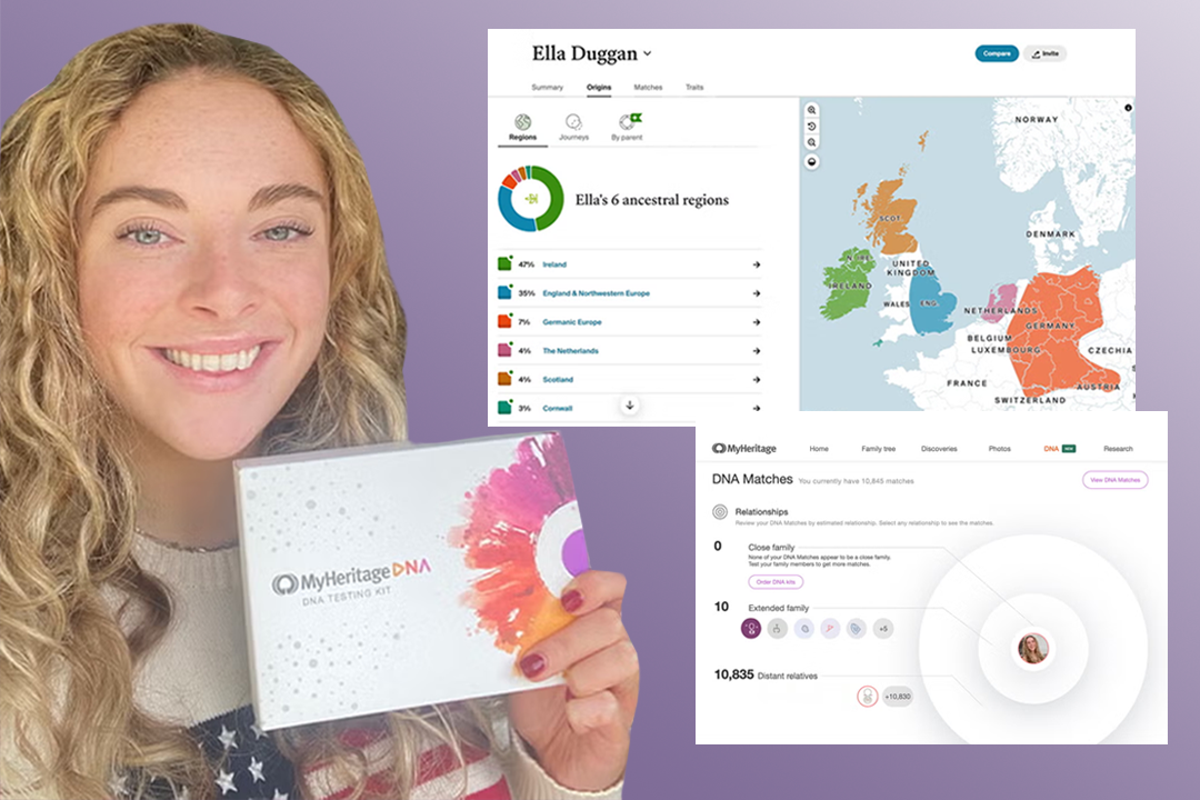Science
Discover Your Ancestry: Top DNA Testing Kits Reviewed

As interest in genealogy and personal heritage continues to rise, various DNA testing kits have emerged as essential tools for uncovering family histories and genetic backgrounds. These kits allow users to delve into their ancestry, providing insights into their lineage and potential health traits. With a range of options available, consumers can now select the most suitable DNA testing kit for their needs.
Top DNA Testing Kits for Family Discovery
Several leading companies dominate the DNA testing market, each offering unique features tailored to different interests. Among the most prominent are AncestryDNA, 23andMe, and MyHeritage. These kits vary in price and the depth of information provided.
AncestryDNA is widely recognized for its comprehensive database, which connects users to a vast network of potential relatives. The kit typically retails for approximately $99 and offers detailed ethnicity estimates, linking users to specific regions across the globe. With over 18 million users, it provides a robust platform for those seeking to expand their family trees.
In contrast, 23andMe focuses on health and ancestry, offering insights into genetic predispositions. Priced at around $199, this kit provides not only ancestry information but also reports on potential health risks, traits, and carrier status for various genetic conditions. This dual approach appeals to individuals interested in both their heritage and personal health.
Another notable option is MyHeritage, which is priced at approximately $79. This kit not only offers ancestry insights but also features a user-friendly interface for building family trees. MyHeritage’s unique face-matching technology allows users to explore how their DNA matches historical figures, adding an engaging aspect to the experience.
Emerging Competitors and Unique Offerings
While the market is dominated by a few key players, other companies are gaining traction with innovative offerings. FamilyTreeDNA is known for its Y-DNA and mitochondrial DNA tests, which are particularly useful for tracing direct paternal or maternal lines. This level of specificity appeals to serious genealogists and can uncover connections that other tests might miss.
Another interesting choice is Living DNA, which emphasizes regional ancestry with a focus on the UK and Ireland. Their testing kit provides detailed insights into specific regions within those countries, making it a valuable option for individuals with British or Irish roots.
Additionally, the National Geographic offers a unique perspective with its Geno 2.0 test. This kit not only provides ancestry information but also explores ancient migrations and human history, appealing to those interested in a broader context of their ancestry.
In March 2024, the demand for these DNA testing kits is expected to grow further, as more people seek to understand their genetic backgrounds. With the increase in interest, companies are likely to innovate and improve their offerings, making family history exploration more accessible than ever.
The decision on which DNA testing kit to choose ultimately depends on personal interests and objectives. Whether one is primarily focused on uncovering family connections or understanding genetic health risks, there is a kit available to meet those needs. As the field evolves, consumers will benefit from enhanced technologies and greater insights into their unique genetic stories.
-

 Health2 months ago
Health2 months agoNeurologist Warns Excessive Use of Supplements Can Harm Brain
-

 Health2 months ago
Health2 months agoFiona Phillips’ Husband Shares Heartfelt Update on Her Alzheimer’s Journey
-

 Science6 days ago
Science6 days agoBrian Cox Addresses Claims of Alien Probe in 3I/ATLAS Discovery
-

 Science4 days ago
Science4 days agoNASA Investigates Unusual Comet 3I/ATLAS; New Findings Emerge
-

 World2 months ago
World2 months agoCole Palmer’s Cryptic Message to Kobbie Mainoo Following Loan Talks
-

 Entertainment3 months ago
Entertainment3 months agoKerry Katona Discusses Future Baby Plans and Brian McFadden’s Wedding
-

 Entertainment3 months ago
Entertainment3 months agoEmmerdale Faces Tension as Dylan and April’s Lives Hang in the Balance
-

 Entertainment3 months ago
Entertainment3 months agoLove Island Star Toni Laite’s Mother Expresses Disappointment Over Coupling Decision
-

 Entertainment2 months ago
Entertainment2 months agoMajor Cast Changes at Coronation Street: Exits and Returns in 2025
-

 World2 months ago
World2 months agoCoronation Street’s Asha Alahan Faces Heartbreaking Assault
-

 Lifestyle2 months ago
Lifestyle2 months agoEngland Flags Spark Controversy This Summer: A Cultural Debate
-

 Entertainment2 weeks ago
Entertainment2 weeks agoStefan Dennis and Dianne Buswell Share Health Update on Strictly Come Dancing









